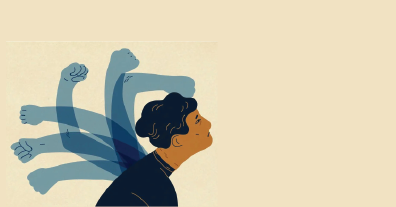
Article by
Unexplained scars. Burn marks. Bruises. Poisoning. The donning of long-sleeved clothes. Staying fully covered at all times, even in the most humid of weather. Tell-tale signs of self-harm? Bingo. The only forms of self-harm that exist out there? Absolutely not.
For most of Generation Z, Gen. Alpha, and us Millennials, much of what we grew up viewing on TV or online has shaped our perceptions of self-harm as typically these kinds of social behaviors. Even to a point that we have grown to objectify these behaviors to the typical “self-harming individual”: an image of a depressed and or consistently aggressive youth, dressed in black, with long unkempt hair, dark eyeliner/kohl staining their eyes, and piercings decorating their face like starry constellations on the milky way-your everyday “emo” girl/boy.
Sounds familiar?
Self-harm is a range of various activities that individuals do to themselves to cope with painful or stressful emotions. Needless to say, all forms of self-harm are dangerous and toxic, hence why it is crucial to recognize and identify them. Although most people’s opinion of self-harm constitutes of “cutting/burning their skin”, “punching or hitting themselves”, or “poisoning themselves with tablets or toxic chemicals'', the truth is that self-harm is a much more complex phenomenon and in some cases, does not even “look” like self-harm.
The subtler and less obvious forms of self-harm are more emotional and psychological than physical in nature, as well as appear to be like self-punishment rather than self-harm. Examples of such “lesser known self-harm” behaviors include:
There is a huge negative stigma attached to self-harm and those who are part of such behavior, particularly in our collectivistic Desi Brown culture. People often try to conceal the fact they are self-harming on account of the fear and guilt that overrides them after committing the action and are anxious about their behavior being seen. As a consequence, they earnestly attempt to perform that behavior in private without others noticing and desist from discussing the problem. In some cases, these are behaviors that hold some level of suicidal intent, for example, overdoses.
However, there is a fine line when it comes to the point of diagnosing these lesser-known self-harm behaviors. This grey area serves as the bridge between knowing; for example, if you do any of the behaviors listed above, it doesn’t necessarily imply you are indulging in self-harm and knowing when it does. A vast many of us have felt sick unintentionally from gobbling one too many brownies, but in the majority of scenarios, that won’t indicate we are self-harming.
The difference, therefore, is when it grows into an unhealthy obsessive habit when it’s chained up with emotional trauma and you are unable to resist stopping yourself.
So how can you identify if your behavior is self-harm?
If you do something unhealthy or dangerous on a daily basis to distract yourself from the way you are feeling
If it feels like a habit you cannot resist
If you feel like self-destruction is easier than tackling your issues
If you feel emotionally ‘numb’ and unhealthy behaviors help you to ‘feel’ something
If you feel stuck in your head and you habitually use unhealthy(toxic)behavior to break free from your thoughts
If you feel like you don’t deserve to be happy
How to get help?
1. Getting expert advice
2. Counselling
3. Boost your self-esteem
4. Talking to someone you trust
Remember, it is often up to close family and friends to take note when somebody is self-harming. Approach the subject with care, empathy, and a listening ear. And remember, you are not alone. Good people exist, and they care for you. You just need to give them a chance.
 Monthly "Azeem English Magazine", launched in 2000, records the information about diverse fields like mental health, literature, research, science, and art. The magazine's objective is to impart social, cultural, and literary values to society.
Monthly "Azeem English Magazine", launched in 2000, records the information about diverse fields like mental health, literature, research, science, and art. The magazine's objective is to impart social, cultural, and literary values to society.
+92 51 88 93 092
First Floor, RAS Arcade, Eidhi Market, Street#124, G-13/4, Islamabad, Pakistan, 44000.